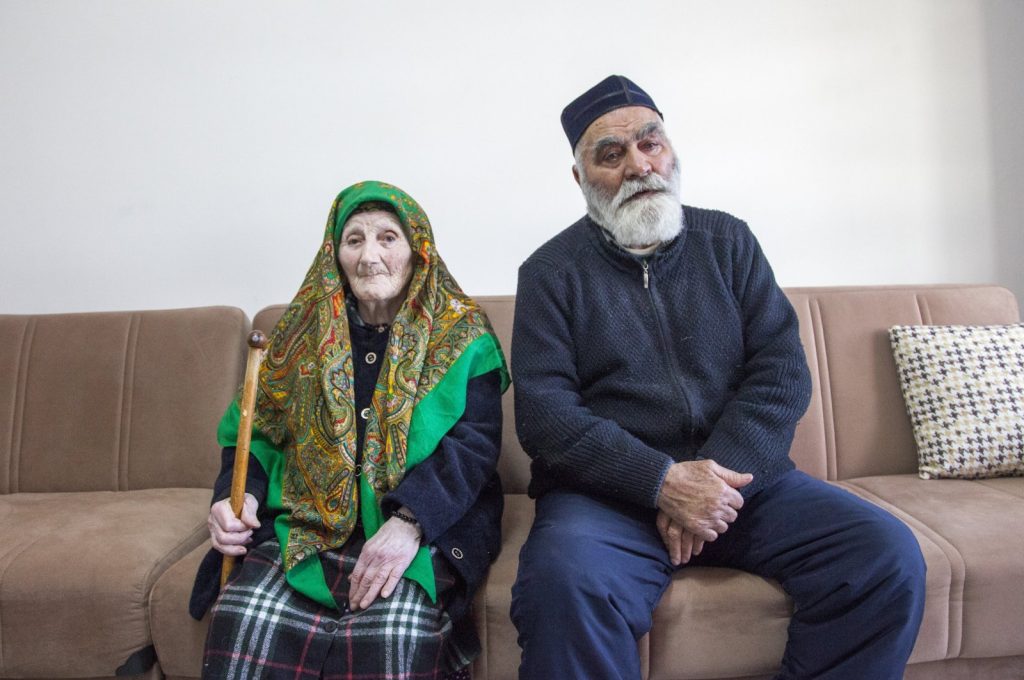The painful memories of their forced exile from their homeland in Georgia still haunt Ahıska Turks 80 years after the fact.
More than 100,000 Ahıska Turks, also known as Meskhetian Turks, including women, children and the elderly, were exiled from their ancestral lands in the Ahıska region of Georgia on Nov. 14, 1944, by Soviet leader Josef Stalin to remote corners of the Soviet Union.
The group faced discrimination and human rights abuses before and after the Soviet deportation. Most of the 90,000 to 117,000 Ahıska Turks who were unexpectedly ripped out of their homes and forced into trains died of disease and hunger while on the road.
Witnesses to the terror, although their numbers decrease day by day, preserve the memory of the exile for the coming generations.
Begzada Maviyev cannot forget when Soviet soldiers gave his village, Koltahev, in Ahiska, only two hours to evacuate their homes before they were packed into wagons under the pretext of sending the Ahiska Turks to Central Asia for their safety during an ongoing war.
Gülistan Meralikızı remembers a conversation her mother had with a soldier when she was only 6.
“He told her we would return three days later,” Meralikızı said. “It’s been 80 years.”
Currently, approximately 20,000 people live in the Meskhetian region of Georgia bordering Türkiye, though a very small number of the population are Ahıska Turks.
The majority of Ahıska Turks still live where they were exiled or in the countries they later migrated to.
According to reports from international organizations and other sources, 550,000-600,000 Ahıska Turks currently live far from their homeland.
Some have made their way to Türkiye while others are in Kazakhstan, Azerbaijan, Russia, Uzbekistan, Kyrgyzstan, the United States and Ukraine.
Due to the conflict that broke out between pro-Russian separatists and the Ukrainian army in eastern Ukraine in 2014, most Ahıska Turks were allowed to move to Türkiye and settled in the eastern province of Erzincan on President Recep Tayyip Erdoğan’s initiative.
Türkiye stands firm
Commemorating the 80th anniversary of the forced exile, the Turkish foreign minister on Thursday reaffirmed Ankara’s ongoing support for the community worldwide.
“We strongly support the successful completion of the journey for Ahıska Turks to return to their homeland,” Hakan Fidan said on X, expressing condolences to those who lost their lives during the exile and voicing empathy for those forcibly displaced.
“On Nov. 14, 1944, approximately a hundred thousand of our Ahıska Turks brothers and sisters were exiled from their homeland in Georgia’s Ahıska region, where they had lived for centuries,” he noted.
The minister said that Türkiye is implementing various initiatives to assist the ethnic Turkish people both domestically and abroad.
Fidan also said that Ankara is “continuously monitoring the situation of the Ahıska Turks, especially through the Council of Europe, on international platforms, and in our engagements with Georgian authorities.”
To support Ahıska families still residing in Georgia, Türkiye has launched projects aimed at economic stability and offers scholarships to Ahiska youth, he added.
“Since the onset of the Russian-Ukrainian war, we have not left Ahıska Turks in difficult circumstances. We have helped them safely reach Türkiye,” Fidan remarked.
He pledged to support the community of over 500,000 Ahıska Turks worldwide.
“We will continue to provide every possible support to help the Ahıska Turks … to preserve their unity and identity and pass it on to future generations,” he stressed.


